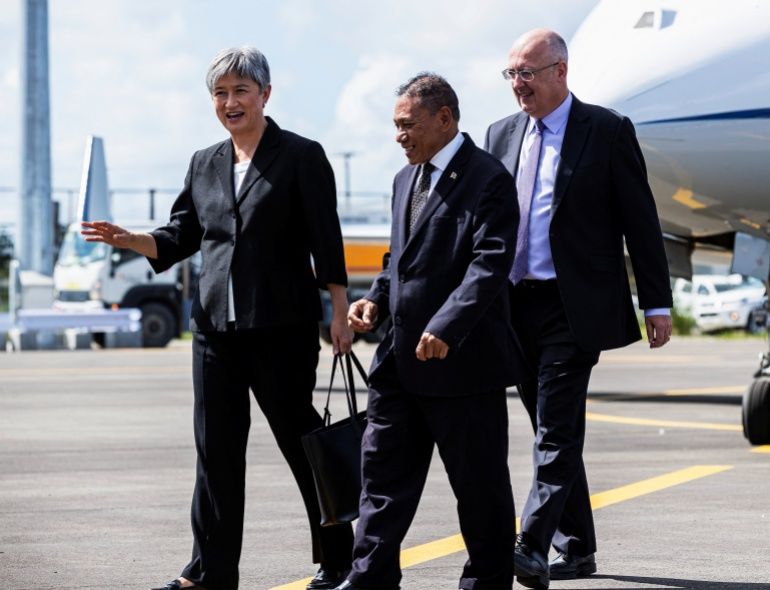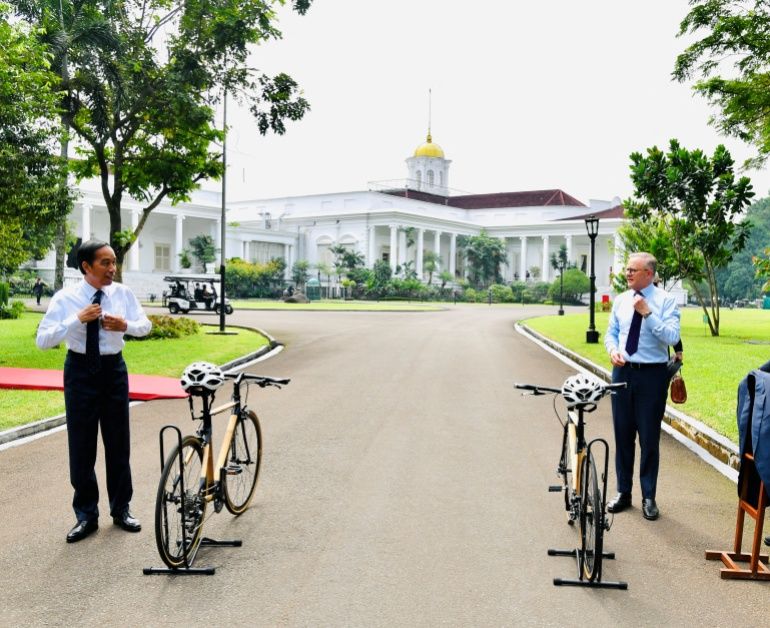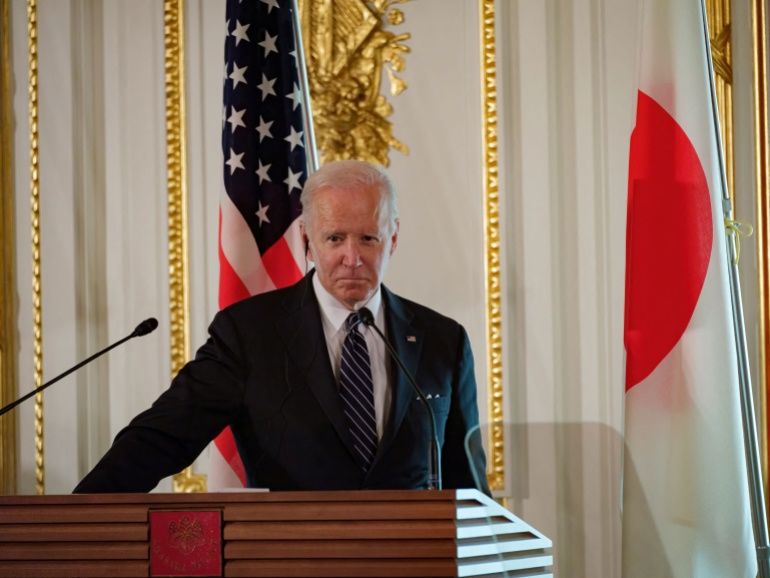
After China row, Australia eyes Southeast Asia as ally in trade
While analysts watch for clues about how Australia’s new government will handle relations with China, Canberra’s sights are set on deepening trade with another megamarket closer to home – Southeast Asia.
Prime Minister Anthony Albanese, who leads the centre-left Labor Party, has promised to make strengthening economic engagement with Southeast Asia a top priority. The pivot is part of a concerted effort at trade diversification, aimed at lessening Australia’s dependence on its largest export market, China, which punished Australian exporters after Canberra called for an independent inquiry into the origins of COVID-19 in 2020.
Yet what Southeast Asian leaders expect from Australia’s new leader, whose election victory last month ended nearly a decade of conservative governance, remains unclear.
“The political elite [here] don’t know who he is,” Phar Kim Beng, a Malaysian policy analyst and former director of the Political-Security Community at ASEAN’s secretariat in Jakarta, told Al Jazeera.
“Albanese is a new name for them. For now, Southeast Asian leaders will judge him on the basis of his party, and assume that he will follow previous Labor leaders, who were pro-Asia and pursued closer integration with the region.”
The new government’s opening moves suggest it will do just that. Albanese has pledged to increase aid to the region by 470 million Australian dollars ($327m), design an ASEAN economic strategy, appoint a special Southeast Asia envoy and create a whole new regional office within its foreign ministry. Meanwhile, Australia’s new foreign minister, Malaysian-born Penny Wong, is native to the region.
 Australian Foreign Minister Penny Wong was born in Malaysia
Australian Foreign Minister Penny Wong was born in Malaysia
“The focus on Southeast Asia makes sense … there are both economic opportunities and strategic imperatives at play,” Peter Varghese AO, chancellor of The University of Queensland, told Al Jazeera.
In 2018, Varghese authored an economic strategy paper to treble Australia’s exports to India, which some Australian analysts believe could serve as a model for the new administration’s Southeast Asia strategy.
“There is broad complementarity between the economies of Australia and Southeast Asia, as is the case with India, but our economic ties with Southeast Asia are more mature than India,” Varghese said.
“In terms of trade structure, we have a solid set of agreements, both bilateral and multilateral that position us well to deepen engagement.”
Indonesia is set to be a key pillar of the government’s agenda with several key initiatives aimed at the archipelago. Apart from geographic proximity, the northerly neighbour is “in a league of its own” in terms of market potential and is the “strategic pacesetter of the region”, Varghese said.
Albanese has visited Indonesia more than any other country and did so again this month, riding bamboo bicycles with Indonesian counterpart Joko “Jokowi” Widodo in Makassar, South Sulawesi. He spoke of Australia’s “sophisticated relationship” with Indonesia, which he has long described as a “future superpower”.
 Australian Prime Minister Albanese met Indonesian President Widodo earlier this month
Australian Prime Minister Albanese met Indonesian President Widodo earlier this month
Yet Australia’s economic relations with Indonesia remain relatively underdeveloped. Despite being neighbours, Indonesia is not among Australia’s top 10 trading partners. Singapore and Malaysia, with far smaller economies, rank higher.
“Australian businesses have often been inclined to beat a path to China, and other more familiar markets,” Phil Turtle, former head of the Australia Indonesia Business Council, told Al Jazeera.
“Like with any new market, there are rules and regulations [in Indonesia] across many sectors that need to be navigated, and that can require a degree of patient investment in time and resources.”
Turtle said food and agriculture products, in particular, often need to pass stringent import and registration requirements.
“Building relationships with local importers and distributors, too, can be challenging. However, organisations like the Australia Indonesia Business Council and Austrade stand ready to assist,” he said.
In 2019, Canberra and Jakarta signed the Indonesia-Australia Comprehensive Economic Partnership Agreement, which lifted tariffs on most trade between the sides.
“The Indonesia-Australia Comprehensive Economic Partnership Agreement has already seen an increased level of interest and activity between Australia and Indonesia,” Turtle said. “With opportunities for business travel now re-emerging there will undoubtedly be even further growth.”
“FTAs themselves don’t fundamentally shift the dial … but they send a strong signal to the markets,” said Varghese, who explained that Indonesia has long been viewed as a “hard market” in Australia.
“This diversification agenda will help enormously for pivoting toward Indonesia,” he added, noting that the “pro-business outlook” of the Widodo government has also improved the environment for Australian companies there.
‘Geopolitical frictions’
Varghese said he expects Australia’s trade dependence on China to lessen over time due to a combination of government policy and “broader currents” in trade and investment.
“China’s economic slowdown, coupled with growing geopolitical frictions, means people will be looking at the Chinese market very differently over the next decade,” he said.
That could have deep implications for the region’s orientation. While Southeast Asian countries have been reluctant to formally align themselves with either the United States or China, the growing geopolitical competition between Washington and Beijing and China’s enormous economic pull have drawn attention to the increasingly difficult balancing act facing states in the years ahead.
“For a long time, Australia has hoped that Southeast Asia, while remaining neutral in a geopolitical sense, would nevertheless lean toward the West,” Varghese said. “Now the big question going into the future is will the region be drawn deeper into the gravitational pull of the Chinese economy?”
“No one expects Southeast Asia to abandon its history of non-alignment … but we want to make sure our longer-term objective of a prosperous and stable Southeast Asia that is open to the West is not lost.”
Like more than one dozen other capitals in the region, Canberra, a close US ally, signed onto the Indo-Pacific Economic Framework announced by US President Joe Biden last month during his high-profile visits to South Korea and Japan. While broadly welcomed, Biden’s signature economic outreach to the region has faced criticism for not going far enough, particularly in terms of granting Asia-Pacific countries greater access to the US market.
 US President Joe Biden unveiled the Indo-Pacific Economic Framework for Prosperity last month in Tokyo, Japan
US President Joe Biden unveiled the Indo-Pacific Economic Framework for Prosperity last month in Tokyo, Japan
Australia, too, has faced questions about consistent leadership after political factionalism produced seven prime ministerships during a span of instability that began in the late 2000s.
“The high turnover of Australian prime ministers since John Howard has left many ASEAN nations at a loss over which political party or leaders to cultivate close ties to,” Phar Kim Beng said.
“A seeming strategic indifference to Australia has morphed into a quiet reticence,” he added. “As China-Australia ties deteriorated in recent years and China weaponized trade with Australia in 2020, ASEAN member states showed a strong tendency to stay on the sidelines. They avoided criticising China directly for fear of provoking Beijing’s ire.”
Phar Kim Beng said the reticence now may be beginning to change due to China’s aggressive behaviour, “but also because there is a Labor government in Canberra and that party has historically been more active on integration with the ASEAN region”.
Phar Kim Beng noted that Albanese spoke first on the importance of economic relations in his statement following the recent meeting of the Quad, a strategic dialogue involving the US, India, Japan and Australia, in Tokyo.
“That is a giveaway sign that Labor’s priority on Asia is more engagement on trade and multilateral trade, which will be received well in the region,” he said, adding the countries will be keeping an eye on key summits later this year for further clues.
“Yet we will be watching to see what his moves are in the upcoming East Asia Summit and the G20 leader’s summit.”










